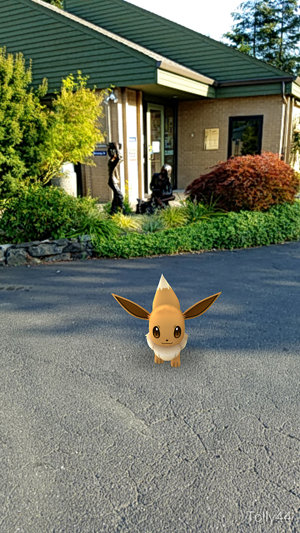
Despite our rural remoteness, the Key didn’t escape the Pokémon GO craze that swept the planet in July. As this augmented-reality (AR) mobile game was released around the world, its number of players quickly surpassed the number of daily Twitter users.
It became an obsession that crossed cultures and borders. A Norwegian lawmaker who was caught on video playing during a committee hearing proved just how universally appealing Pokémon GO is (as well as proving how universally boring politics can be).
Pokémon GO confirmed two things. One is that all it takes for people to collectively abandon their common sense is a shiny new widget. The second is something that marketers have known all along—committing to something for too long makes us fidgety.
Even if you don’t know what Pokémon GO is, you’ve likely seen it in action. Notice people walking around the parking lot at Lake Kathryn or outside the Key Center Library, with their phones in front of their faces, staring intently at the screen? Yep, Pokémon GO.
Based on an original Nintendo video game from the 1990s, Pokémon are mythical creatures that human characters in the game can catch and train to battle against each other.
The AR version uses location-based technology and smartphone cameras to allow actual humans to “catch” the digital Pokémon in physical environments. Gamers, aka “trainers,” can also get digital game goodies at specific real-world locations—typically local landmarks and public areas (i.e., the Wauna fire station, the library, the Vaughn post office).
Like rock music, teenage angst and Starbucks, Pokémon GO became a shared cultural experience around the world. Entire nations reacted—some decrying the game, others treating it like a matter of national security.
Medical professionals loved it: The app encouraged people to get off their couches and move around (phones in faces notwithstanding). Gamers also interacted with other “trainers” in person. Such a rare occurrence these days, it’s no doubt good for mental health.
 Some gamers, however, became so enthralled with catching Pokémon, they ignored their own safety.
Some gamers, however, became so enthralled with catching Pokémon, they ignored their own safety.
A few walked into traffic while playing. A couple walked off a cliff. Someone drove into a tree. The incidents were geographically neutral—like some strange United Nations of folly.
The game soon turned into an international economic engine. We can now eat Pokéburgers, hire personal guides and take bus tours. If that’s too much work, we can visit the new dating site or skip right to the virtual reality porn parody.
Smart entrepreneurs rushed to cash in while they could. Because smart entrepreneurs know that many (most?) obsessions that start with a bang eventually fizzle.
Pokémon GO hasn’t fizzled yet. But it’s entering “meh” territory.
Blame it on the eight-second-attention span humans have (if we believe marketing research). Even goldfish beat that. By one whole second!
The challenge is not only that we have collective ADHD, thanks to the millions of hours of digital media entertainment competing for our brains and eyeballs, simultaneously, on multiple screens. The challenge is that there is so much attention-demanding content. Is that dress blue or yellow? Is Jon Snow alive? What did the latest quiz tell you about yourself?
It doesn’t matter if Pokémon GO broke new ground with its augmented reality experience, or how different or innovative the game is, because our connected lives make it difficult for anything to sustain our attention for too long.
Our problem is that we get bored and move on as soon as something shinier comes along.
Especially if it’s something that doesn’t require getting off the couch. Or talking to another human in person.
Rodika Tollefson lives a Pokémon-free but obsession-obsessed life in that part of the KP that has an identity crisis because the post office calls it Gig Harbor./em>
UNDERWRITTEN BY THE FUND FOR NONPROFIT NEWS (NEWSMATCH) AT THE MIAMI FOUNDATION, THE ANGEL GUILD, ADVERTISERS, DONORS AND PEOPLE WHO SUPPORT INDEPENDENT, NONPROFIT LOCAL NEWS